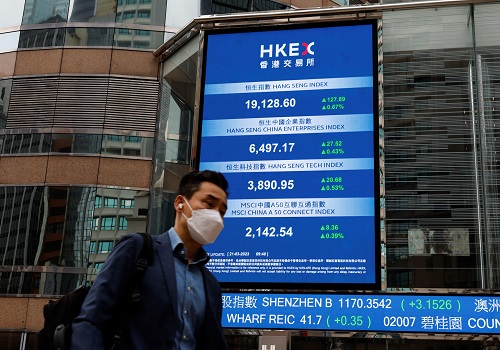Benchmark indices end flat with negative bias on Friday
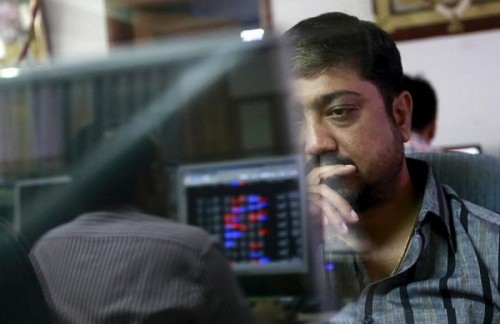
Follow us Now on Telegram ! Get daily 10 - 12 important updates on Business, Finance and Investment. Join our Telegram Channel
In a volatile trade, Indian Benchmark indices erased most of their initial losses and ended flat with negative bias on Friday weighed by Oil & Gas and Energy stocks amid a weak trend in global equity markets. Markets made negative start and stayed in red for whole day as traders were concerned as the World Bank projected a growth rate of 6.5 per cent for the Indian economy for the fiscal year 2022-23, a drop of one per cent from its previous June 2022 projections, citing deteriorating international environment. It added that private investment growth is likely to be dampened by heightened uncertainty and higher financing costs. Some anxiety also came with a private report stated that India's rupee will trade near its record low against the mighty greenback beyond this year, buffeted by rising oil prices and an aggressive U.S. Federal Reserve rate-hiking campaign.
However, key gauges managed to trim most of their initial losses in late afternoon deals, as traders took some support with Chief economic adviser V Anantha Nageswaran’s statement that India is still on course for 7% growth in the current fiscal year although downside risks dominate the upside risk but it's better placed than other countries. Some support also came as the Department of Expenditure, Ministry of Finance, has released the 7th monthly instalment of Post Devolution Revenue Deficit (PDRD) grant of Rs 7,183.42 crore to 14 states. With the release of seventh instalment for the month of October, 2022, the total amount of Revenue Deficit Grants released to the states in current fiscal has gone up to Rs 50,282.92 crore. Besides, as per provisional data available on the NSE, foreign institutional investors (FIIs) remained net buyers to the tune of Rs 279.01 crore on October 6.
On the global front, European markets were trading mostly in green as investors awaited a key U.S. jobs report due later in the day that could shed more clarity on labor market conditions. The upside, if any, was capped by weak data releases from Germany and the U.K. German industrial output dropped 0.8 percent on a monthly basis in August after remaining flat in July as raw material shortages and supply chain bottlenecks continued to dampen the functioning of many industries, Destatis said. Production was forecast to ease 0.5 percent. Asian markets settled lower on Friday as investors digested hawkish comments from some Fed officials and awaited a key U.S. jobs report due later in the day for further clarity on labor market conditions.
Finally, the BSE Sensex fell 30.81 points or 0.05% to 58,191.29 and the CNX Nifty was down by 17.15 points or 0.01% to 17,314.65.
The BSE Sensex touched high and low of 58,269.34 and 57,851.15, respectively. There were 13 stocks advancing against 17 stocks declining on the index.
The broader indices ended mixed; the BSE Mid cap index fell 0.15%, while Small cap index was up by 0.30%.
The top gaining sectoral indices on the BSE were Consumer Durables up by 2.13%, Telecom up by 0.91%, Industrials up by 0.52%, Capital Goods up by 0.35% and Realty up by 0.27%, while Oil & Gas down by 0.78%, Energy down by 0.72%, Metal down by 0.63%, IT down by 0.57% and FMCG down by 0.52% were the top losing indices on BSE.
The top gainers on the Sensex were Titan Company up by 5.27%, Power Grid Corporation up by 1.45%, Indusind Bank up by 1.06%, NTPC up by 0.95% and Maruti Suzuki up by 0.93%. On the flip side, Mahindra & Mahindra down by 1.37%, Ultratech Cement down by 1.29%, SBI down by 1.28%, TCS down by 1.28% and Bajaj Finance down by 0.79% were the top losers.
Meanwhile, Citing deteriorating international environment, the World Bank in its latest report on ‘South Asia Economic Focus’ has downgraded India’s economic growth forecast to 6.5 per cent for the fiscal year 2022-23 (FY23), a drop of one per cent from its previous June 2022 projections. The Indian economy grew by 8.7 per cent in the previous year. However, it noted that India is recovering stronger than the rest of the world.
Hans Timmer, World Bank Chief Economist for South Asia said ‘The Indian economy has done well compared to the other countries in South Asia, with relatively strong growth performance... bounced back from the sharp contraction during the first phase of COVID’. He observed that India has done relatively well with the advantage that it doesn't have a large external debt, there are no problems coming from that side, and that there is prudent monetary policy. The Indian economy has done especially well in the services sector and especially service exports.
He further said ‘But we have downgraded the forecast for the fiscal year that just started and that is largely because the international environment is deteriorating for India and for all countries. We see kind of an inflection point in the middle of this year, and first signs of slowing across the world.’ He noted that the second half of the calendar year is weak in many countries and will be relatively weak also in India.
He said that's mainly because of two factors. One is the slowing of growth in the real economy of high-income countries. The other one is the global tightening of monetary policy that tightens financial markets and not just that it leads to capital outflows in many developing countries, but it also increases interest rates and uncertainty in developing countries which has a negative impact on investment.
The CNX Nifty traded in a range of 17,337.35 and 17,216.95. There were 18 stocks advancing against 32 stocks declining on the index.
The top gainers on Nifty were Titan Company up by 5.30%, Power Grid Corporation up by 1.45%, Grasim Industries up by 1.17%, NTPC up by 1.17% and ONGC up by 1.02%. On the flip side, Tata Consumer Product down by 1.65%, BPCL down by 1.49%, Mahindra & Mahindra down by 1.34% and Ultratech Cement down by 1.30% and SBI down by 1.17% were the top losers.
European markets were trading mostly in green; UK’s FTSE 100 increased 9.68 points or 0.14% to 7,006.95 and France’s CAC increased 5.02 points or 0.08% to 5,941.44, while Germany’s DAX decreased 9.18 points or 0.07% to 12,461.60.
Asian markets settled lower on Friday amidst Wall Street's weak performance overnight ahead of a key US jobs report due later in the day for further clarity on labour market conditions, while hawkish comments from some Federal Reserve officials also kept investors cautious. Oil extended gains and were set for the biggest weekly gain since March after OPEC+ agreed to tighten global supply with a deal to cut production targets by 2 million bpd. Hong Kong shares declined, with Chinese property developers leading the slide on concerns over their financial health. Japanese shares dropped on worse-than-expected earnings outlook from heavyweights Advanced Micro Devices and Samsung Electronics, adding to headwinds from rising inflation and a weakening yen. Meanwhile, Chinese market was closed for the Golden Week holiday.
Above views are of the author and not of the website kindly read disclaimer






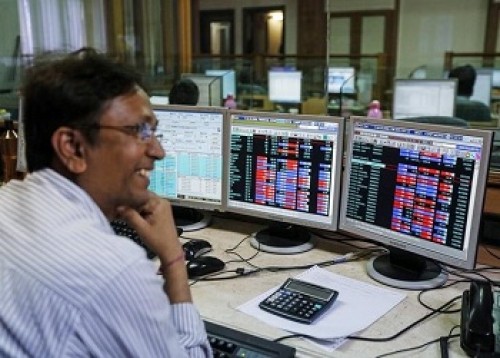

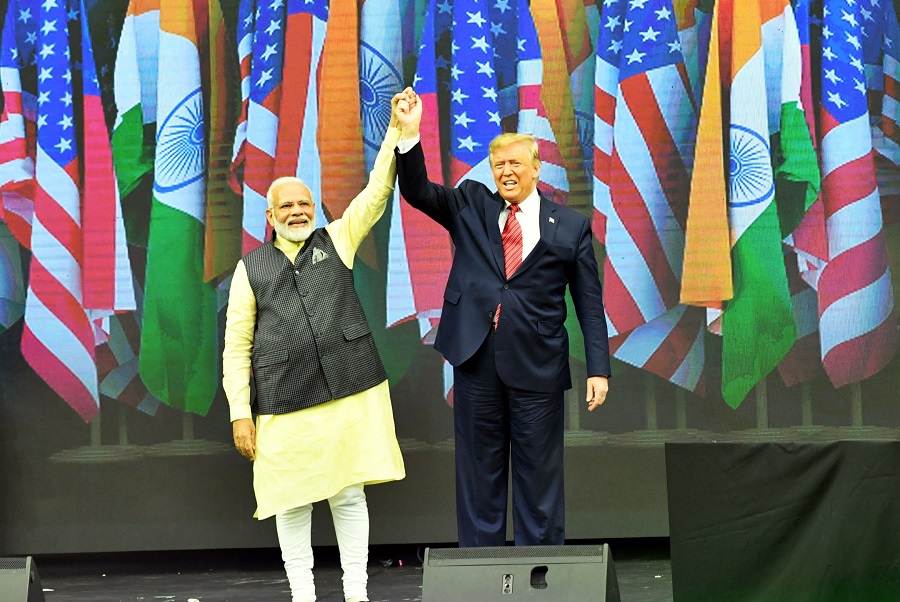

Tag News

Weekly Market Analysis : Markets strengthened recovery and gained nearly 2% in the passing w...



More News
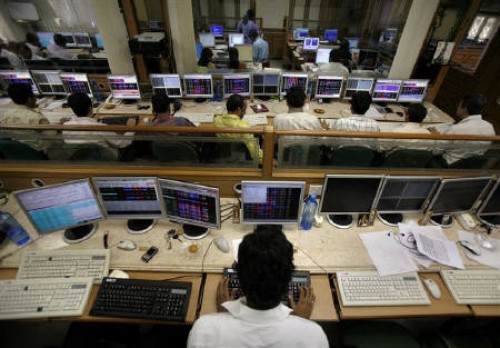
Quote on Nifty : The Nifty displayed strength, primarily driven by strong demand for large-c...









